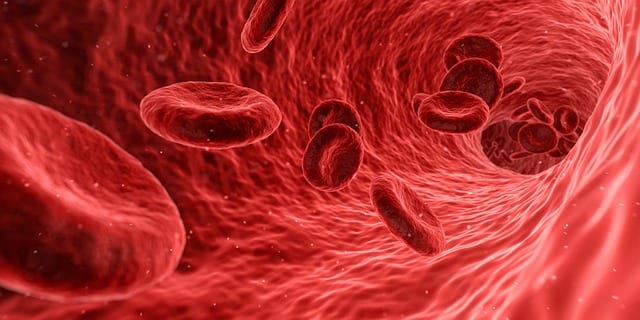
Looking at Why Acute Myeloid Leukemia Patients Relapse After Treatment
 A new study funded by Australian Rotary Health may be able to explain why patients with Acute Myeloid Leukemia (AML) relapse after treatment.
A new study funded by Australian Rotary Health may be able to explain why patients with Acute Myeloid Leukemia (AML) relapse after treatment.
Steven Ngo from Monash University was awarded a Funding Partner PhD Scholarship from Australian Rotary Health and the Rotary Club of Richmond, Victoria in 2016, to investigate what could potentially cause relapse in AML by engaging differentiation of immature leukemic cells.
Differentiation therapy is a new form of therapy that looks to eliminate cells in a non-toxic way by transforming mutated cancer cells into ‘normal’ blood cells.
Once these cancer cells become ‘normal’ cells, they are then cleared from the body naturally. However, although such therapies have been highly successful in treating certain types of AML, the disease also returns in some patients.
During his PhD project, Steven has found that when restoring the gene PU.1 in immature leukemic cancer cells, the leukemic cells turn into two distinct ‘normal’ immune blood cell types – one that has a short lifespan (known as neutrophilis), and another that is longer living (known as eosinophilis).
“Interestingly, while the cancer cells that become short lived neutrophils are cleared very rapidly, those that transform into eosinophils are more difficult to clear, persist longer, and are therefore likely to seed relapse,” Steven said.
“In addition to this, relapse seems to arise outside of the bone marrow, with transformed cancer cells located specifically in the spleen being the likely source of relapse. Therefore, we were not only able to show what may cause relapse in AML, but also the likely location of where the relapse originates from.”
Looking ahead, Steven believes that if they can combine current therapies that look to transform immature leukemic cells into normal blood cell types, with a drug that can get rid of the ‘longer living’ eosinophil blood cells, they could potentially improve the overall survival rate of patients with AML.
“We have been able to provide a conceptually novel explanation as to why AML patients relapse following treatment. This discovery could provide new approaches to treating AML patients, with the hope of one day improving the overall survival rate of patients with this debilitating disease,” Steven said.
Steven is now awaiting journal articles from his PhD research to be published and presented his findings at the Lorne Cancer Conference earlier this year.
Media contact: Jessica Cooper – (02) 8837 1900 or [email protected]